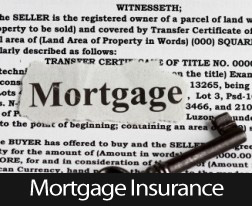A Breakdown – The Difference Between FHA, VA and USDA Mortgages
 Are you thinking about using mortgage financing to buy a new home? If so, you’ve likely heard about mortgage insurance policies requirements and you may be wondering how they will affect you. In today’s blog post we’ll explore mortgage insurance and explain the difference between conventional, FHA, VA and USDA mortgage insurance policies.
Are you thinking about using mortgage financing to buy a new home? If so, you’ve likely heard about mortgage insurance policies requirements and you may be wondering how they will affect you. In today’s blog post we’ll explore mortgage insurance and explain the difference between conventional, FHA, VA and USDA mortgage insurance policies.
How Does Private Mortgage Insurance or “PMI” Work?
While there are a number of reasons that your lender may require mortgage insurance, in general you’ll be required to purchase a conventional PMI policy if you are putting less than 20 percent of the home’s value in as a down payment.
Another way your lender might explain this is that you have a “loan to value” or “LTV” ratio of higher than 80 percent, which means that the amount of your loan divided by the value of your home is higher than 0.8.
The cost of your private mortgage insurance policy will vary depending on a number of factors, such as your financial situation, FICO credit score, the cost of your home and more. Generally speaking you’ll be required to pay from one-half to one percent of the cost of your monthly mortgage payment in insurance fees.
Once your LTV ratio moves below 80 percent you may no longer be required to pay for PMI.
How Does VA Mortgage Insurance Work?
If you qualify for a mortgage from Veterans’ Affairs you’ll be pleased to know that you won’t be required to pay for mortgage insurance. In some instances you actually won’t be required to pay a down payment either, meaning that you may be able to borrow up to $400,000 to purchase a home without having to invest a cent of your own capital.
How Does USDA Mortgage Insurance Work?
Did you know that the Department of Agriculture runs a mortgage program? The USDA Rural Development mortgage offering is government-backed and like the VA mortgage program above you can finance 100 percent of the cost of your home without investing a down payment. However, unlike the VA program you’ll be required to pay for mortgage insurance. Currently the annual mortgage insurance premium on USDA loans is 0.5 percent.
How Does FHA Mortgage Insurance Work?
Finally, don’t forget about the Federal Housing Administration’s mortgage program. If you qualify for a FHA-backed mortgage, you’ll be paying about 1.35 percent in mortgage insurance premiums if you make the minimum down payment.
As you can see, there is a bit of a learning curve involved with fully understanding how all of the different types of mortgage insurance work. To learn more about mortgages and how insurance can benefit you, contact your local mortgage professional today.
 When it comes to putting a down payment on a house, most lenders are going to ask for 20 percent; however, some lenders will be willing to accept a smaller down payment in exchange for something else.
When it comes to putting a down payment on a house, most lenders are going to ask for 20 percent; however, some lenders will be willing to accept a smaller down payment in exchange for something else. Are you in the market for a new home? If you are considering a mortgage, you may be curious about mortgage insurance, commonly referred to as PMI or MI. Let’s explore the topic of mortgage insurance, including how it works to reduce risk and how it benefits you as the mortgage borrower.
Are you in the market for a new home? If you are considering a mortgage, you may be curious about mortgage insurance, commonly referred to as PMI or MI. Let’s explore the topic of mortgage insurance, including how it works to reduce risk and how it benefits you as the mortgage borrower.